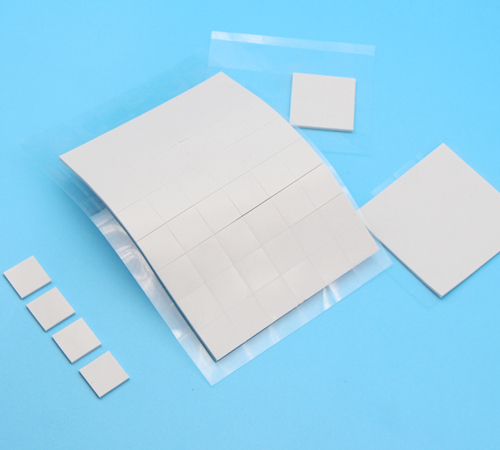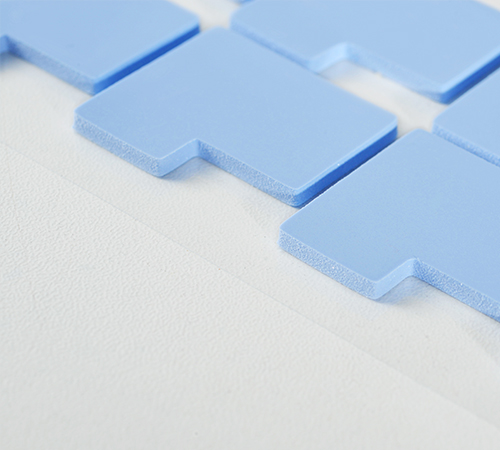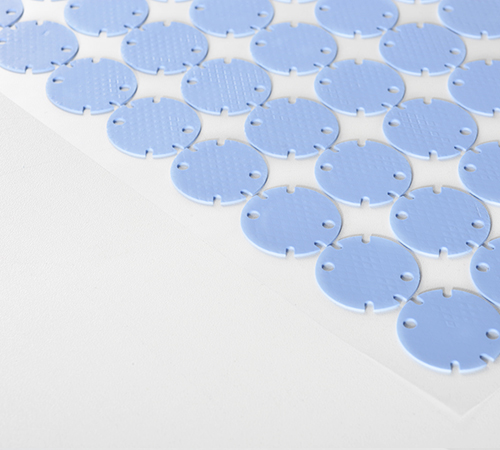Thermal pads play a critical role in thermal management, bridging the gap between heatgenerating components and heat sinks or enclosures. Selecting the right manufacturer is crucial for ensuring the thermal conductivity, reliability, and performance of your products. This article explores the key factors to consider when choosing a thermal pad manufacturer, helping you make an informed decision.
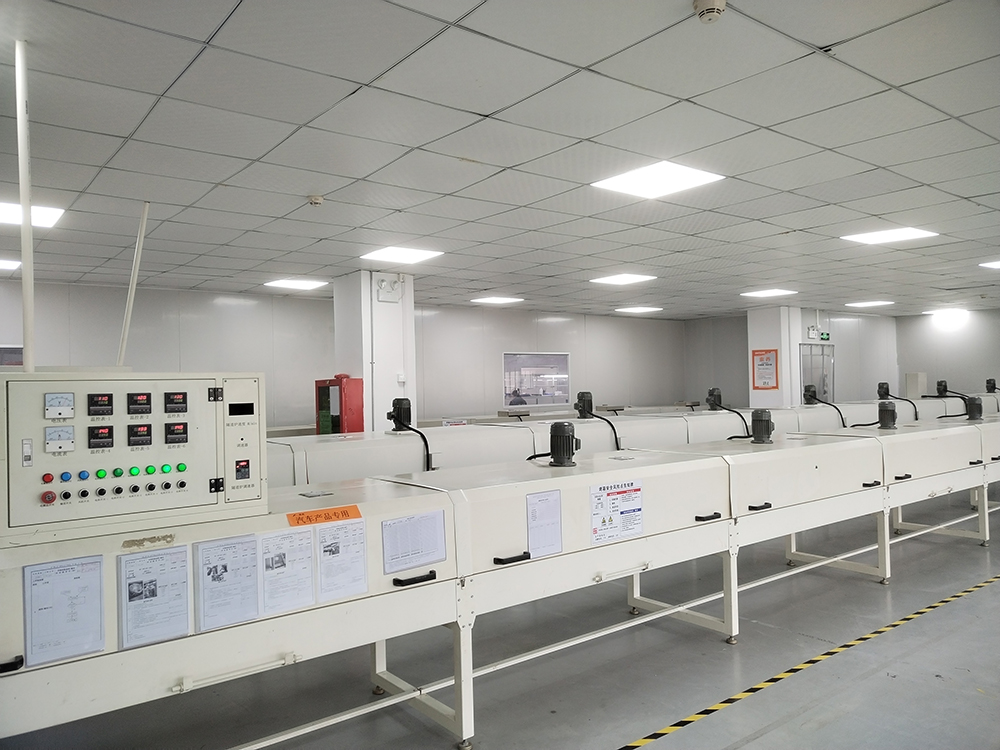
1. Understand Your Requirements
Before evaluating manufacturers, it is essential to have a clear understanding of your specific needs:
● Thermal Conductivity: What level of heat dissipation is required for your application?
● Material Composition: Do you require silicone thermal pads, graphitebased materials, or specialized solutions?
● Operating Environment: Consider factors like temperature range, electrical insulation, and environmental resistance.
● Product Dimensions: Define size, thickness, and any customization needs.
This clarity will help you filter manufacturers based on their capabilities and product offerings.
2. Evaluate the Manufacturer's Expertise and Reputation
A reliable manufacturer should have extensive experience and a proven track record in thermal pad production. Key factors to assess include:
● Industry Experience: How long has the manufacturer been in the thermal management field?
● Certifications: Look for certifications like ISO 9001 or ISO 14001, which demonstrate quality management and environmental compliance.
● Customer Reviews and Case Studies: Check testimonials and explore past projects to understand the manufacturer's reliability and expertise.
3. Assess Material Quality and Innovation
The quality of the materials used in thermal pads determines their performance and durability. Consider the following:
● Material Substrates: Manufacturers offering substrates like fiberglass cloth or other reinforced materials may provide better thermal stability and mechanical strength.
● R&D Capabilities: An innovative manufacturer invests in research and development to produce highperformance and customized thermal solutions.
● Compliance with Standards: Ensure that the products meet regulatory and safety standards such as RoHS, REACH, or UL certifications.
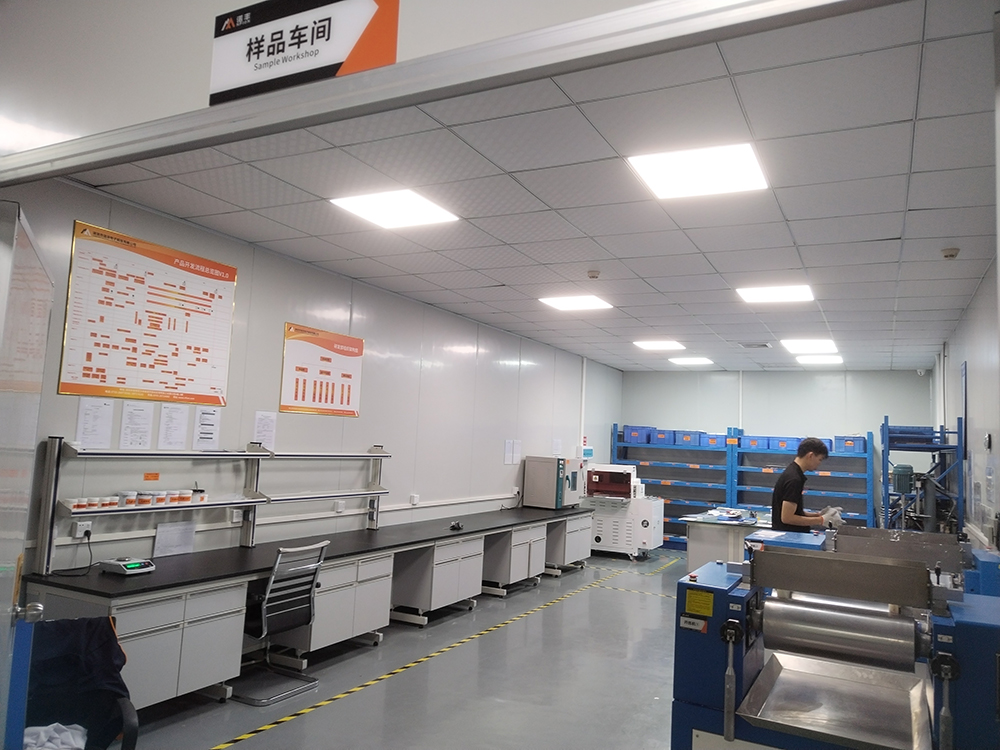
4. Customization and Production Capacity
A good manufacturer should be able to adapt to your unique requirements:
● Custom Design Services: Can they provide tailored thicknesses, shapes, and adhesive options?
● Scalability: Assess their ability to handle both small and large production volumes without compromising quality.
● Lead Time: Evaluate whether the manufacturer can meet your deadlines consistently.
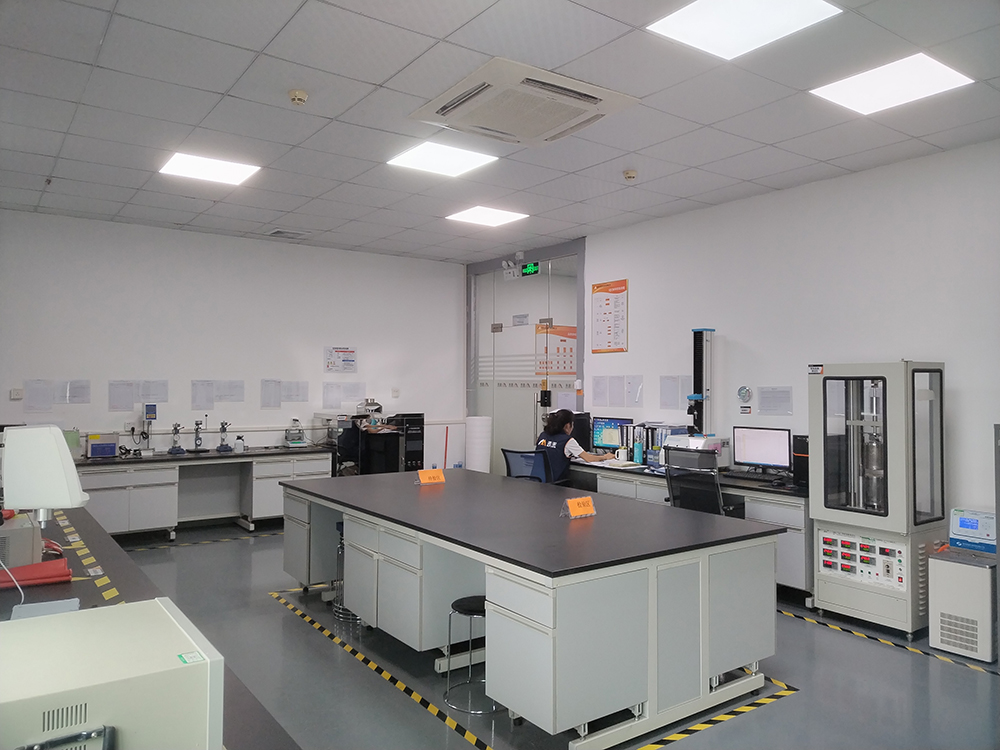
5. Technical Support and Customer Service
Comprehensive support is critical for a seamless partnership:
● PreSales Consultation: Does the manufacturer offer guidance in material selection and thermal analysis?
● Technical Support: Check if they provide onsite or remote support during product integration.
● AfterSales Service: Reliable manufacturers offer warranty, troubleshooting assistance, and regular followups.
6. CostEffectiveness and Value
While cost is a significant factor, it should not compromise quality. Consider the following:
● Price Transparency: Ensure the manufacturer provides clear pricing without hidden fees.
● Value for Money: Evaluate the product's performance relative to its cost.
● LongTerm Savings: Highquality thermal pads may have a higher upfront cost but can save money by reducing maintenance and improving device lifespan.
7. Geographic Location and Supply Chain Reliability
The manufacturer’s location impacts shipping costs, lead times, and supply chain stability:
● Local vs. International Suppliers: Balance the benefits of local accessibility with the cost advantages of international manufacturers.
● Logistics and Delivery: Ensure the manufacturer has reliable shipping channels and contingency plans for supply chain disruptions.
8. Environmental and Ethical Considerations
Sustainability and ethical practices are becoming increasingly important:
● EcoFriendly Materials: Choose manufacturers that offer recyclable or environmentally friendly thermal pad options.
● Ethical Practices: Assess whether the manufacturer adheres to fair labor practices and maintains ethical supply chain standards.
Conclusion
Choosing the right thermal pad manufacturer is a strategic decision that can significantly impact your product’s performance and reliability. By understanding your requirements, evaluating the manufacturer’s expertise, and prioritizing quality, customization, and support, you can establish a partnership that meets your technical and business needs. Take the time to research and compare options, and you’ll ensure longterm success in your thermal management efforts.



 CN >
CN >
